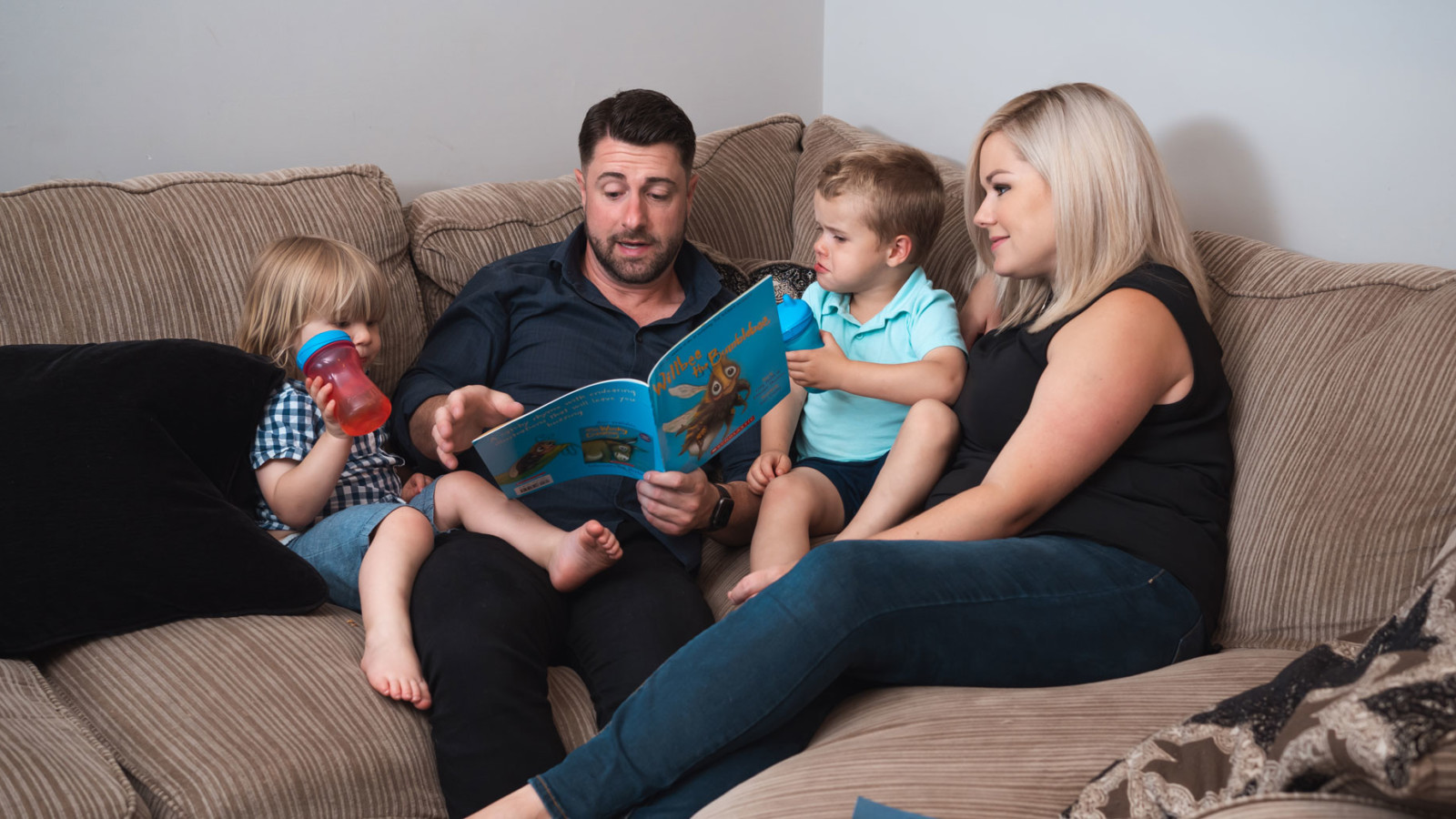“Hey man,” he said, sliding over to give me a handshake. “How’s it going? I’m Rob. Great party, huh?”
I smiled. “Yes, perfect weather. I’m Andrew.”
Rob slapped me on the back. “Hot weather, cold beer.” He chuckled. “So, what do you do, Andrew?” he asked as he shoved a beer in front of my face.
I smiled and reluctantly took the bottle. “I run a commercial roofing company.”
Rob put a hand to his ear as if listening to something in the distance. “Hear that…. Happy Birthday and cake time. I can’t miss this!”
Then he walked away.
I stood there for a moment. Did Rob even hear me?
That night I laid in bed, contemplating.
Does ‘what I do’ define me?
I’ve read a lot on the topic lately. Recent reads include “5 Reasons Why Your Work Doesn’t Define You” in the latest version of INC Magazine and “Why I Don’t Let My Job Define Me” on some parenting blog last month. However, I never really asked myself the question until now.
Practically every person says that my job doesn’t, or at least shouldn’t, define me.
So why is it then, that when you first meet someone, the conversation often unravels in the same, old way: “Hello, my name is [insert name]. I’m a [insert job title here] at [insert company name]. It’s nice to meet you.”
When asked, “Who are you?” we commonly give our job titles and/or a description of our work.
I came to a conclusion that same night.
There was nothing wrong with Rob’s party question, but there was something wrong with my answer.
Work defines status in our society because we let it.
It’s a fact. Corporate North America organizes people into a social hierarchy, which is determined by their jobs and incomes.
But when have you ever read a eulogy that states “Rob had a lucrative career and generated six figures”?
You haven’t and you won’t.
That’s because a job description is only a small (dare I say, insignificant) piece of your legacy.
We work to earn our livelihood. As Maya Angelou put it, “I’ve learned that making a ‘living’ is not the same thing as making a ‘life.’”
We ultimately value others for who they are, not where they work.
Work defines status in our society, but only if you let it.
“It’s Just Business” because we accept it.
What seems like a lifetime ago, my career journey had taken me into the service side of the commercial roofing industry.
What struck me most profoundly was how easily poor ethics were excused. Things like moral mishaps and blatantly questionable business practices.
I learned a lot. Fast.
I remember walking into my boss’s office one day.
“You poached my best roofer!” he was yelling.
“Just business, you know?” replied the anonymous man on the speakerphone.
I stood there, wide-eyed.
My boss glared up at me. “Get out and shut the damn door, Andy!”
I turned and left, but not before uttering, “It’s not just business. It’s personal.”
I realized right then that I would never have any separation between my work life and my personal life. They are one in the same. If I accepted that, I would never be able to justify that “it’s just business,” because that wouldn’t be possible.
“It’s just business” is purely a copout to remove the human element from our decisions and make it easier to make tough calls. Even if we feel badly about them.
It’s not just business to me. It shouldn’t be just business to you. If you are building something of value, it’s personal.
We only have one life and it’s all personal.
I pour everything I have into everything I do. I work on the things that define me. I work on the things that I am passionate about. I work on the things that I want the world to use, discover.
I work on things that tell the world who I am, how I am and what I am.
My work is the output of my thoughts, my actions, and my vulnerabilities. My work is me and that makes it personal.
So, what am I saying here? My self-identity is about my potential and qualities. Work-related and personally:
- Am I a good vendor, father, spouse?
- Do friends and customers alike view me as loyal, trusting, caring, and kind?
- Do I treat colleagues, employees and even competitors with respect?
- Do I have a sense of pride when cutting my grass, making a sandwich for my son or roofing an entire building?
I’d like to think so, yes. If it’s not the case, I strive to be better.
A second chance with Rob
“Hey there, ummm… Frank?” he said.
“It’s Andrew,” I grinned. “You’re Rob, right?”
Rob tapped his temple with his index finger. “Andrew, yes, I remember you now. What do you do again?”
Here’s my chance, I thought.
“I’ve been meditating a lot lately and working on self-care. I’m reading a really inspiring book called ‘Unfu*k Yourself.’ It’s a tough love kinda message. I’m really enjoying it.”
Rob looked confused. “O-ok-ay,” he stuttered. “I thought you were a… plumber?”
“A roofer. Yes, I manage a roofing company. Actually, we are doing this amazing project for a women’s shelter in the area…”
Rob cut me off.
“Andrew, buddy. We don’t need to get personal. Let’s just have a beer.”
So Rob really didn’t want an answer. He simply wanted to have a drink with a roofer.
“Everything is personal.” I handed him my beer. “Have one for us both,” I chuckled as I walked away.
Then it occurred to me. I wonder who Rob is?


